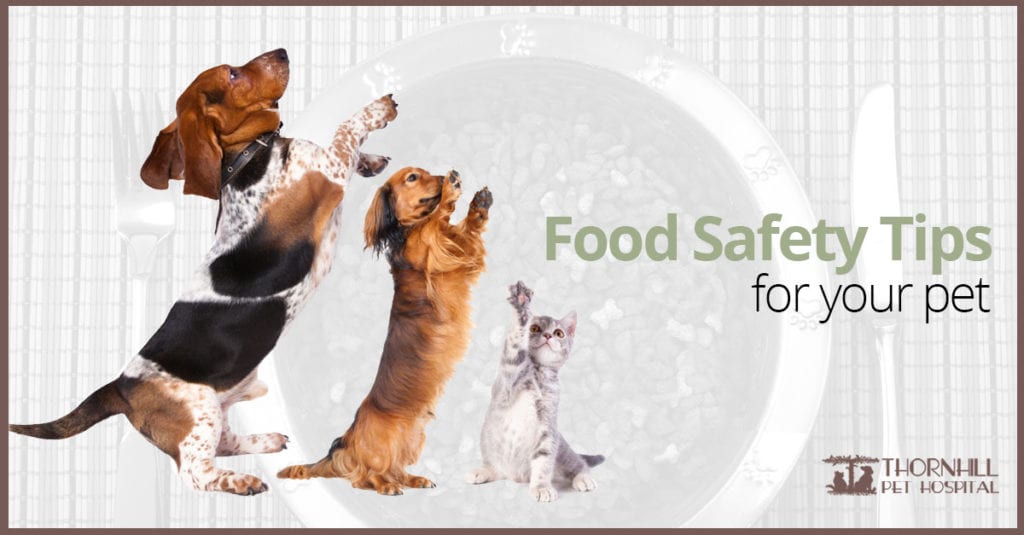
The holiday season has officially kicked off, and the team at Thornhill Pet Hospital in Oakland wants to make sure that the four-legged members of your family are safe. As you’re busy cooking and eating, your pet will likely be around, wondering if you plan to share any of that delicious food with them. If you feed your pet “people food,” it’s important to know which foods are safe for pets and which ones aren’t. Consider the following food safety tips so your dog or cat can have a safe, happy holiday with you and the rest of your family!
Say No to Turkey Bones
While turkey meat itself is safe for pets (white meat only, without gravy on it), the bones are not. Bones can cause a choking hazard or cause digestive problems. Even if you think your dog will be able to handle a small bone, you can’t always predict how their body will respond to it, so it’s best to avoid feeding them bones altogether. Consider giving your dog some new dog treats or a bone that’s specially made for dogs instead to keep them occupied.
Keep the Sweets Out of Your Pet’s Reach
Did you know that chocolate contains an alkaloid called theobromine, which is toxic to pets? And the darker the chocolate, the higher the toxicity level. With that in mind, it’s best to avoid giving your pet any kind of chocolate. Another ingredient common in sweet foods that can be dangerous to your pet is the sugar substitute xylitol. This is common in candies and gums, so avoid giving your pet any food with this ingredient…and since you may not always know whether or not a sweet treat contains xylitol or chocolate, it’s best to keep all the sweets out of your pet’s reach.
Say Yes to (Some) Fruits & Veggies
Fruits and vegetables are rich in vitamins and fiber, making them nutritious for your pet, but not all fruits and vegetables are safe. On the “safe list” are carrots, celery, apples, and blueberries. Onions, garlic, and other members of the allium family are on the “no-no” list, along with grapes and raisins. These foods can be toxic to pets and cause problems like vomiting, diarrhea, and nausea. Just be sure to chop up the fruits and veggies from the “safe list” into small, bite-sized pieces before giving them to your pet.
If you think your pet has ingested a toxic food, or if you have any questions about the tips listed above, call Thornhill Pet Hospital in Oakland at 510-339-2041.
